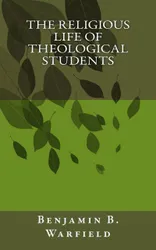The word
“inspire” and its derivatives seem to have come into Middle English from the
French, and have been employed from the first (early in the 14th century) in a
considerable number of significations, physical and metaphorical, secular and
religious. The derivatives have been multiplied and their applications extended
during the procession of the years, until they have acquired a very wide and
varied use. Underlying all their use, however, is the constant implication of an
influence from without, producing in its object movements and effects beyond
its native, or at least its ordinary powers. The noun “inspiration,” although
already in use in the 14th century, seems not to occur in any but a theological
sense until late in the 16th century. The specifically theological sense of all
these terms is governed, of course, by their usage in Latin theology; and this
rests ultimately on their employment in the Latin Bible. In the Vulgate Latin
Bible the verb inspiro (Gen. 2:7;
Wisdom of Solomon 15:11; Ecclesiasticus 4:12; 2 Tim. 3:16; 2 Pet. 1:21) and the
noun inspiratio (2 Sam. 22:16; Job
32:8; Psalm 18:15; Acts 17:25) both occur 4 or 5 times in somewhat diverse
applications. In the development of a theological nomenclature, however, they
have acquired (along with other less frequent applications) a technical sense
with reference to the Biblical writers or the Biblical books. The Biblical
books are called inspired as the Divinely determined products of inspired men; the
Biblical writers are called inspired as breathed into by the Holy Spirit, so
that the product of their activities transcends human powers and becomes
Divinely authoritative. Inspiration is, therefore, usually defined as a
supernatural influence exerted on the sacred writers by the Spirit of God, by
virtue of which their writings are given Divine trustworthiness.














